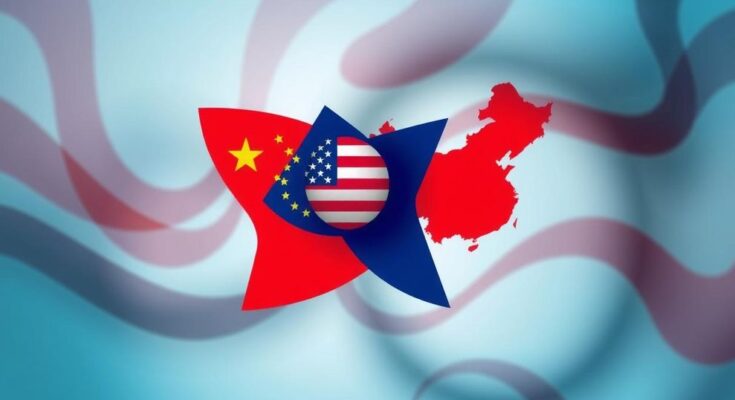Europe is reassessing its dependencies on the U.S. and China following President Trump’s reduction of aid to Ukraine. This has sparked discussions about the risks of relying on the U.S. while simultaneously attempting to strengthen ties with China, despite ongoing efforts to reduce dependencies on Chinese supplies.
The ongoing geopolitical landscape has prompted Europe to reconsider its reliance on both the United States and China. Following President Donald Trump’s decision to reduce aid and intelligence-sharing with Ukraine, significant concerns have emerged regarding the risks of depending on the US for security and support. This shift in US policy has led to a potential reevaluation of Europe’s engagement with China, although expectations of a rapid transformation in this regard may be overly optimistic.
In light of this upheaval, some European Union leaders are contemplating the improvement of strained relations with Beijing. Nevertheless, EU officials are simultaneously advancing efforts to reduce perceived vulnerabilities related to China’s supply chains. Recent policy initiatives and remarks indicate that Brussels’ strategy to mitigate risks stemming from its dependencies on China is accelerating, despite concurrent considerations for de-risking from the United States.
This dual approach raises a challenging question: Should Europe seek to de-risk simultaneously from both of the world’s major economic powers? A debate is currently unfolding that would have seemed unlikely before recent developments, highlighting the complex nature of international relations and economic interdependencies.
In conclusion, Europe is currently embroiled in a critical examination of its dependencies on both the United States and China. Following recent shifts in US policy and the ongoing challenge of balancing its relations with China, newfound discussions are emerging about whether Europe should simultaneously reduce its reliance on both nations. This complex dilemma underscores the intricacies of modern geopolitical strategy and economic ties.
Original Source: www.scmp.com




